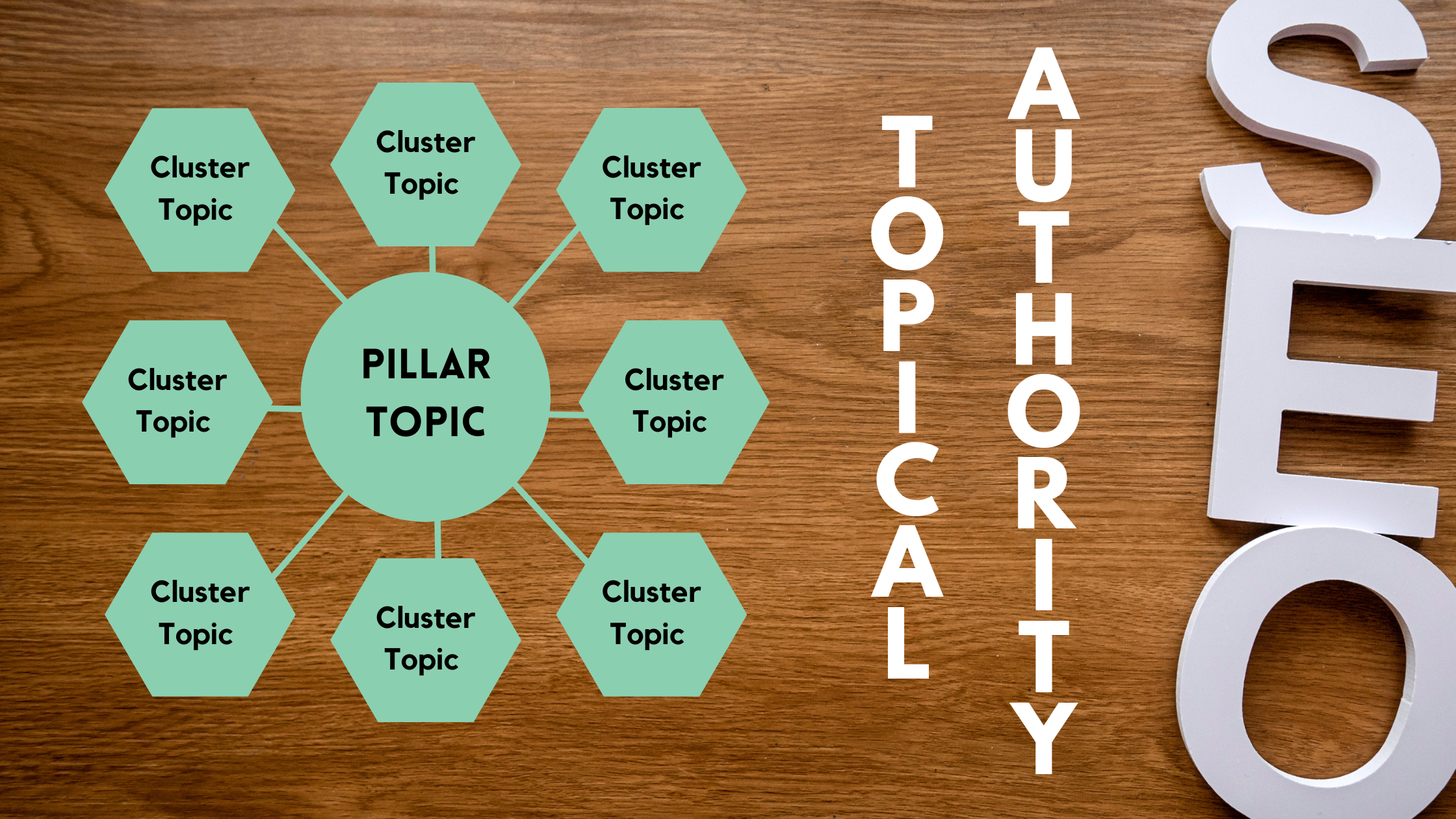Build Topical Authority for Your Website
Topical authority enables you to demonstrate why a user should buy from your website. By focusing on topical coverage, you can establish trust and credibility in search engine result pages (SERPs) to recognize your website as an authoritative source of information about a specific subject that deserve to rank higher.
To get the highest level of topical trust than competitors, it is extremely important to cover everything that your competitor provides and go beyond. Furthermore, diversify your content types (videos, images, guides etc.) to capture the interest of your audience from different platforms.
As your website gains more authority and proves to be more helpful, why would Google favor a competitor’s site when it recognizes yours as the source with the most valuable information?
Note: To secure a higher ranking on Google and gain favor from Google algorithm, incorporating keywords into your content is crucial. While focusing on producing high-quality articles, it’s important to be mindful of avoiding keyword cannibalization, keyword stuffing, content spinning, buying links etc.
keyword research, content architecture using hub and spoke model, a well-crafted internal link building all while mapping your success.
Let’s learn step-by-step process for gaining Topical Authority to achieve your long-term goals and rank out your competitors.
- Develop an Amazing Content Strategy
- Focus on Your Niche / Finalize Your Topic
- Topic-based Keyword Research
- Create Topic Clusters / Topical Map
- Write High-Authority and Problem-Solving Content
- Plan Link Building Strategies for Internal and External Links
- Leverage Social Media Platforms
- Measure Your Efforts
- Final Thoughts
Develop an Amazing Content Strategy
Constructing a comprehensive and detailed content strategy is crucial for setting up topical authority in a specific niche. Your plan of action to build topical authority must have a strategy for content creation to build authority. It includes topics and keywords that will target your audience in SERPs.
Pay your utmost focus on helping your visitors by providing some knowledge. Look for ongoing discussions in your industry; and start sharing your thoughts on most significant and related topics.
Focus on Your Niche / Finalize Your Topic
To establish website’s topical authority about a topic, it is important to niche down your topic. Specifying your focus about a topic permits you to delve deeply into one specific topic and demonstrate your expertise in that area.
Always focus on becoming the primary source of information on niche related topics. It is an efficient approach to target a broad audience and save time and money.
Instead of establishing authority about a vast topic of your industry; consider focusing on a specific niche related topic. This methodology will help you to create original, informative, and valuable content for your subject.
Topic-based Keyword Research
The primary step of generating topical authority involves comprehensive keyword research. Analyze essential keywords related to your niche and develop a strategy to create content around them.
Quality and relevancy of the content you generate should be high. In addition, it needs to follow google algorithm to become search-engine friendly.
Great Content Quality + More Relevancy + Search Engine Friendly = Higher Topical Authority

Therefore, it is crucial to have multiple data-backed content ideas. Once, you have determined your niche and brainstormed pillar page concepts, take advantage of keyword research tools (semrush, ahrefs, google keyword planner, etc.) to discover additional related search terms to target with your SEO and content marketing strategies.
Selecting a strong seed keyword forms the basis of your topical research and create topical map.
When you strategically structure the connections between your content, you establish coherence and cohesion. Determining a seed term that aligns with your topic is essential. Here’s the approach to selecting a strong seed keyword for conducting topical keyword research:
- Perform keyword research and categorize them into clusters.
- Thoroughly outline the interrelation among these keyword clusters.
- Determine the purpose of each article (the conventional funnel serves as a good model for this).
Ensure continuity by covering some related keyword topics with your social media and pay-per-click (PPC) advertising campaigns to maximize their impact.
Create Topic Clusters / Topical Map
Topic cluster are interlinked webpages discussing about the same subject. The objective of these pages is to consolidate related content, making it more accessible for both users and Google.
With your keyword research in hand, you should group your list of search terms into clusters based on search intent, taking into account their potential for generating traffic.
Your chosen topics should have strong potential for traffic and generally align with informational intent.
Next, you should select the most suitable content format for the cluster:
- Guides – A timeless content format providing comprehensive coverage of a specific topic.
- What is X – An in-depth definition or response to a question.
- How to X – A step-by-step tutorial outlining the process of accomplishing a specific task.
After finalizing your topic, you need to determine how to divide your main topic into subtopics / key topics. Once you’ve devised this plan, you can then incorporate it into the architecture of your website.
These key topics you have finalized, can work as a pillar content for the specific subject. Concentrate on these few key subjects and utilize them as foundational pillars.
Ensure that you write a high-quality content on core pillar content; furthermore, explore additional related subjects, many of them have a lower search volume than primary topics keywords.
While addressing these low search volume related topics, make sure you give a link back to the bigger topic and connect them seamlessly among the other smaller topics associated with your main topic of the niche.
Note: Incorporating low-volume keywords, phrases, and questions can contribute to building topical authority for high-volume keywords.
Write High-Authority and Problem-Solving Content
Now, it’s high time to use your keyword research and topic clusters to curate some content.
“Be ready with an interactive content strategy, start writing top-notch, highly authoritative content. Each piece of content should provide value, be thoroughly researched, and ideally, be in a long-form format.”
Research indicates that longer content tends to achieve higher rankings on search engines. Ensure a variety of content types, including articles, videos, and infographics, are incorporated.
Begin by creating your primary pillar content pieces. Typically, you should aim to have a pillar page for each product or service you offer or for the primary niche you wish to establish authority in.
These core topics should possess a balance, being broad enough to have subcategories for targeting, yet specific enough for a searcher to find them relevant upon landing on your page.
For every content piece you develop to enhance your topical authority, ensure you:
- Craft high-quality content that resonates with your chosen topic and aligns with your search term
- Consider E-A-T (Expertise, Authoritativeness, Trustworthiness) throughout the content creation process.
- Strengthen content depth by covering a wide range of topics and subtopics within your niche.
- Align with search intent; for instance, create a how-to guide for keywords like [how to X] or list the benefits for [benefits of X].
- Incorporate internal links to relevant topics within your content.
- Regularly update your content to maintain its relevance over time.
- Share your experiences, expertise, and insights within the content.
- Maintain factual, helpful, and informative content.
- Optimize readability through short sentences, concise paragraphs, and straightforward terminology.
- Create a content structure that is easy to scan, read, and understand.
- Include supporting images, videos, or infographics.
By creating well-focused high-quality content, websites can effectively build topical authority and position themselves as trusted source for information within their respective industries.
Plan Link Building Strategies for Internal and External Links
Sometimes, high-quality content is not enough to rank better, it also needs linking whether internal or external linking. Building links is also important to build topical authority.
Internal links in webpage content help search engines and users to easily navigate between two connected pages of website. Internal linking enhances user experience, improve user engagement rate, improve website’s architecture.
While, external linking has a potential to significantly improve your website’s authority. Building external backlinks is an easiest approach to create connection and improve websites’ credibility.
Always strive to create backlink from reputable websites within your industry. When using link building strategies for getting topical authority, it is important to ensure that linking website content and your web content are relevant.
Here are some strategies for building topical backlinks:
Outreach
Lets connect other websites or influencers and requesting them to create links that point back to your website. Outreaching is the most straightforward and direct approach to get backlinks for website.
Guest blogging
Indeed, guest posting is also an effective way to build topical trust flow. Nevertheless, engaging in guest blogging should not be solely focused on acquiring links.
Skyscraper Technique
A great link-building strategy where you can do enhancement of already popular content and replication of existing backlinks.
Ego bait
A smart and effective method to build high-quality links and generate leads for business.
HARO (Help-a-reporter-out)
Using this technique, you can get authoritative backlinks from top-tier sources of your industry.
Broken Link Building
A link building technique to find dead links on other websites and asking web admins to replace the old link with new link. This approach revamps search engine rankings and boosts traffic of your website.
Unlinked Brand Mentions – Unlinked brand mentions are determined as high-potential prospects where you are discussed but not linked to. Requesting these mentions to get backlinks while focusing on quality outreach.
Leverage Social Media Platforms
Social media platforms are powerful tools to build topical authority and domain authority. While social media links don’t establish a direct impact on your website’s search engine rankings, but they significantly influence other factors that comprises traffic, engagement, and brand visibility.
To build topical authority via social platforms, you can share your content on social media with relevant hashtags to engage audience and promote user-generated content. In addition, optimizing your social profiles and collaborating with influencers also help in increasing your brand visibility and driving more traffic to your website.
Measure Your Efforts
While building topical authority, monitoring the results of your efforts are also important. Google Analytics, Google Search Console, SEMrush, Ahrefs are some of analysis tool to monitor Key Performance Indicators (KPIs).
Every content strategy begins with measurable goals, whether it’s increasing organic traffic, ranking for more keywords in the top positions, obtaining more leads from the traffic, or even boosting sales. Monitoring the results is essential, as without it, we won’t be aware of whether these objectives have been achieved. This practice enables you to –
- Understanding the placement of each of our pieces of content.
- Determining opportunities for enhancement and re-optimizing less visible publications.
- Removing content that is ineffective or outdated.
- Refreshing older articles that receive high visibility with the latest user concerns and recent information.
- Identifying issues related to keyword cannibalization.
Final Thoughts
Topical authority is a convincing approach that can put a considerable impact on your online presence. It demands for dedication, knowledge, and persisting efforts but the outcomes are highly valuable.
By building topical authority, both individuals and businesses can establish themselves as reliable source of information to expand the reach to larger audience and ultimately accomplish their objectives.
So, if you want to rank out your competitors in SERPs, it is the time to start building topical authority.
By understanding the dynamics of topical authority and adhering to the essential steps to establish it, individuals and businesses can improve their online presence and attract a broader audience.




